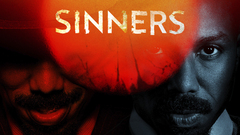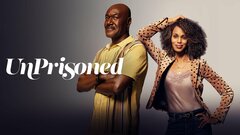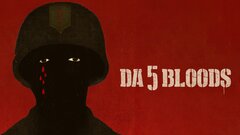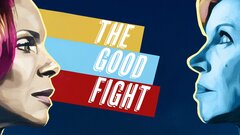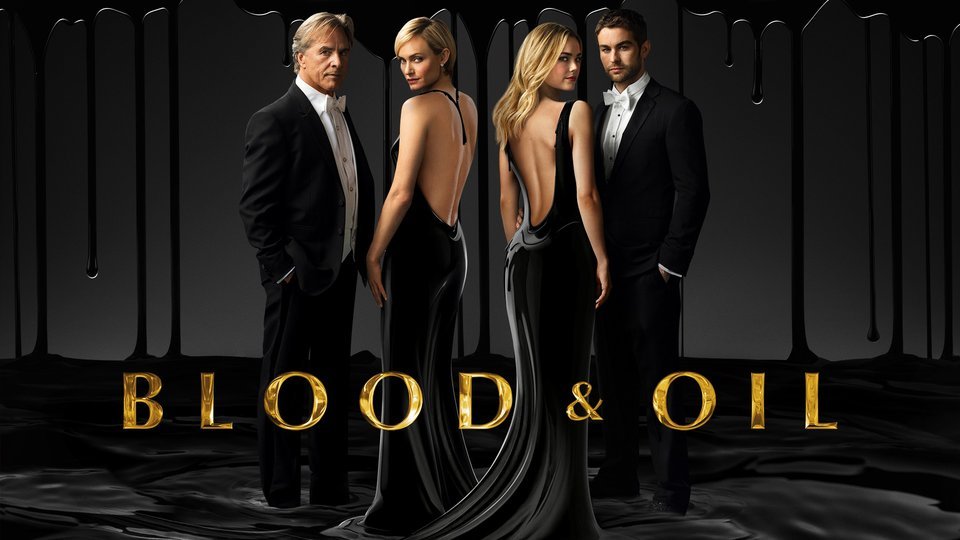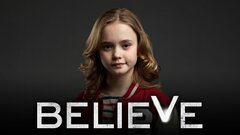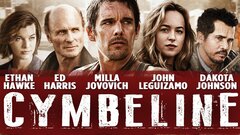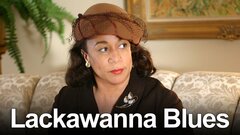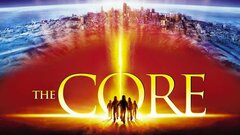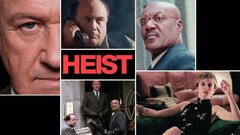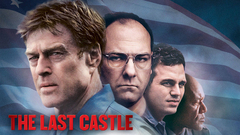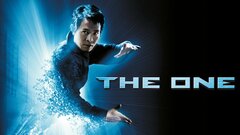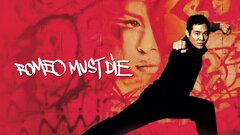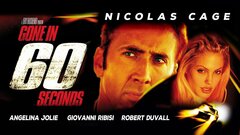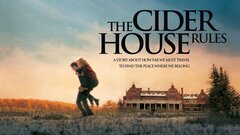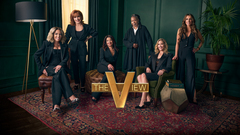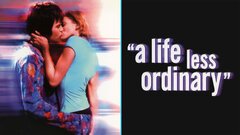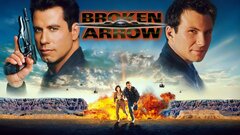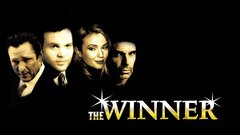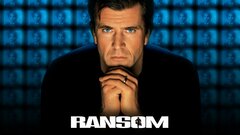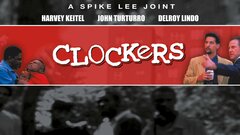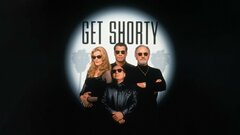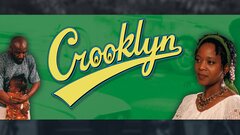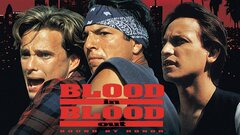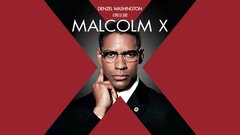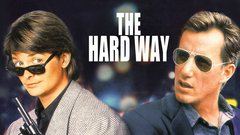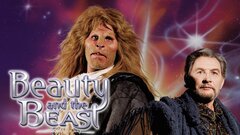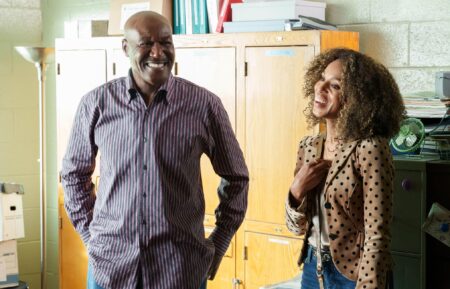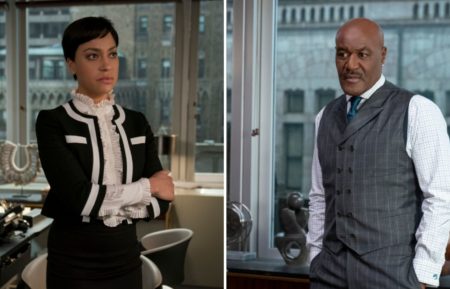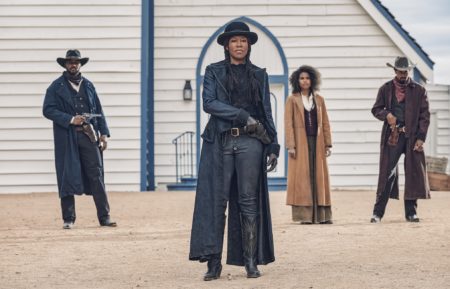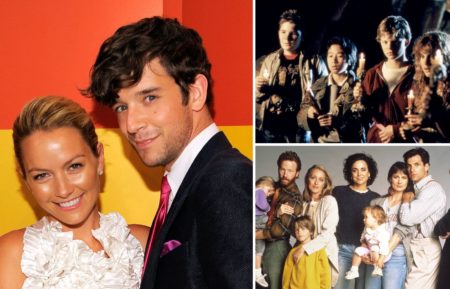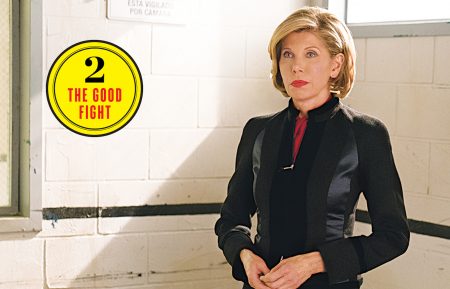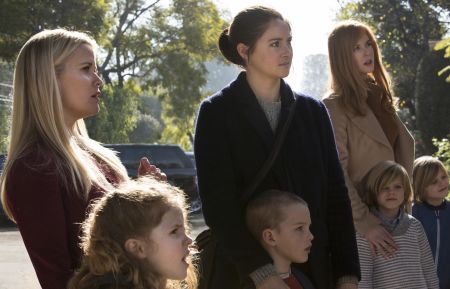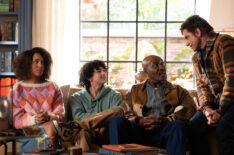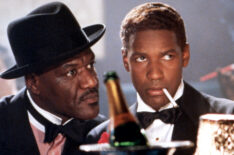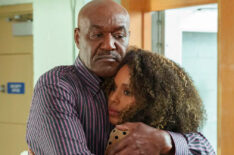After establishing himself as an excellent stage performer, actor Delroy Lindo was noted for his remarkable ability to balance both anger and charm while portraying a variety of onscreen villains in films like "Clockers" (1995) and "Get Shorty" (1995). Audiences first discovered Lindo in Spike Lee's "Malcolm X" (1992), at a time when the actor was trying to gain a foothold in Hollywood. It was Lee who gave Lindo several opportunities to showcase his range - playing a caring but misguided father in "Crooklyn" (1994) and a charming drug dealer in "Clockers."
With the doors opened wide after "Get Shorty," Lindo struggled with another Hollywood trap - being typecast. But instead of portraying strictly amiable bad guys, he broke away with riveting portrayals of historical figures like Satchel Paige in "Soul of the Game" (HBO, 1996), explorer Mattew Henson in "Glory & Honor" (TNT, 1997), and Supreme Court nominee Clarence Thomas in "Strange Justice" (Showtime, 1998).
By the time he gave a memorable supporting turn in the multi-award winning "Lackawanna Blues" (HBO, 2005), Lindo was established as a versatile performer who excelled in a wide range of film, television and stage roles. Shifting to television work, Lindo starred in a number of short-lived series, from procedural drama "Kidnapped" (NBC 2006-07) and crime drama "The Chicago Code" (Fox 2011) to science fiction fantasy "Believe" (NBC 2014), before finding success with a supporting role in legal drama "The Good Fight" (CBS All Access 2017- ).
Born on Nov. 18, 1952 in London, England, Lindo was raised by his immigrant Jamaican parents in nearby Lewisham. He had his first acting experience at five years old when he played one of the kings in a production of the Nativity, which Lindo built on later by performing in community theater.
After moving to Toronto, Canada, then San Francisco, CA, as a teenager, Lindo took his first steps toward becoming a professional actor when he began training at the Bay Area-based American Conservatory Theatre on scholarship. With a letter of recommendation from ACT in hand, Lindo moved to New York, where he managed to secure an understudy's role in "Spell #7" (1979) by Ntozake Shange, a two-act poetic vignette about what it means to be black in America.
He made his off-Broadway debut in the same production for the Public Theatre, which at the time boasted the likes of Samuel L. Jackson and Denzel Washington. He soon found himself in Colorado with the Denver Center Theatre Company for a season, after which he returned to New York to perform in a showcase of Lorraine Hansberry's "Les Blancs."
Though Lindo made his feature debut with a small part in "More American Graffiti" (1979), it would be some time before he became a steady presence in films and on television. In the meantime, he continued forging a stage career, working with the Milwaukee Repertory Theatre from 1981-82, while winning acclaim and a nomination for a Helen Hayes Award for his portrayal of Walter Lee in Hansberry's "A Raisin in the Sun" (1984), at the Kennedy Center in New York City.
After touring for several months as Willie in Athol Fugard's "Master Harold and the boys," Lindo reprised the role for his Broadway debut in 1984, for which he was previously the understudy for Danny Glover, who had left the production. The actor worked regional theater for a few years before landing the role of the haunted, ascetic Herald Loomis in August Wilson's "Joe Turner's Come and Gone," which he performed in a few different productions before performing on Broadway in 1998.
Directed by Lloyd Richards, the Broadway production earned several award nominations, including a Best Actor nod for Lindo at the Tony Awards. Once Lindo became an accomplished and decorated star of the stage, Hollywood naturally beckoned. After making his official television debut in two episodes of the once-popular "Beauty and the Beast" (CBS, 1987-1990), he had a prominent role as an assistant district attorney in the murder thriller "Perfect Witness" (HBO, 1989).
He had one of his first co-starring roles in the futuristic sci-fi drama, "The Blood of Heroes" (1990), which he followed with small parts in "Bright Angel" (1991) and "The Hard Way" (1991), starring Michael J. Fox and James Woods. Lindo first gained notice for his supporting performance in Spike Lee's underappreciated "Malcolm X" (1992), which should have opened the floodgates of offers from other corners, but did not.
Instead, Lindo continued to work with Lee, who cast him in his quasi-autobiographical "Crooklyn" (1994). The actor played Woody Carmichael, an idealistic jazz musician and father of an African-American family in 1970s Brooklyn, whom Lindo portrayed as an enormously appealing man undermined by a lack of self-discipline and irresponsibility. He rejoined the director for "Clockers" (1995), a gritty true-life crime story, playing a charismatic, but sociopathic drug kingpin. The film received generally respectful reviews with particularly glowing kudos for Lindo.
Thanks to his collaborations with Spike Lee, Lindo gained the notice he deserved and started landing roles in other high-profile projects. He was excellent as a smarmy drug dealer with cinematic pretensions in "Get Shorty" (1995), butting heads in several funny and memorable scenes with John Travolta, with whom he worked again on the John Woo-directed thriller "Broken Arrow" (1996).
Building a reputation for playing memorable villains, Lindo was in danger of becoming typecast. In "Feeling Minnesota," which cast him as a gangland boss, he failed to break any new ground. Though playing an upbeat FBI agent in Ron Howard's "Ransom" (1996), he still found himself in the antagonist's role. But Danny Boyle's "A Life Less Ordinary" (1997) offered a change of pace, giving him the chance to play an angel partnered with a fellow spirit (Holly Hunger), who are tasked with trying to make two people (Ewan McGregor and Cameron Diaz) fall in love.
Back on television, he delivered an outstanding portrayal of baseball legend Satchel Paige in "Soul of the Game" (HBO, 1996), presenting the famed pitcher as a man of considerable business savvy who carefully calculated his down-home country boy image for public consumption. In "Glory & Honor" (TNT, 1997), he brought soul and dignity to polar explorer Matthew Henson, whose contributions to Robert Peary's nine attempts on the North Pole were largely unmentioned by history.
He next gave another riveting historical portrayal in "Strange Justice" (Showtime, 1998), a political drama that allowed the actor to emotionally capture then-nominated Supreme Court Justice Clarence Thomas as a self-righteous creature of ambition. He also created and executive produced both the Independent Film Channel's "Delroy Lindo on Spike Lee" (1999) and "Conversations with Charles Burnett" (Showtime, 2000), which he directed.
As the conflicted foreman of "The Cider House Rules" (1999), Lindo offered arguably the most multi-layered performance of his film career, delineating a man who, on the surface seems good, but really harbors a dark and disturbing secret. He made the segue to action films, playing yet another gangland boss in "Romeo Must Die" (2000), which he followed with an antagonistic detective matching wits with master car thief (Nicolas Cage) in the remake of "Gone in 60 Seconds" (2000).
In 2001, Lindo starred in several diverse film roles. After playing a space traveling cop navigating wormholes in pursuit of a murderer (Jet Li) in the martial arts sci-fi action flick, "The One," he appeared alongside the likes of Robert Redford, James Gandolfini and Mark Ruffalo in the ham-handed military prison drama "The Last Castle." He next appeared in David Mamet's "Heist" (2001), another in a line of crime dramas from the former playwright depicting backstabbing thieves spouting clipped dialogue laden with sharp profanity.
Lindo returned to television, playing a mentally challenged man who meets a kindred soul (Kirstie Alley) at an institution and starts a family with her over the objections of the Social Security department in the sappy made-for-television movie, "Profoundly Normal" (CBS, 2003). After playing the creator of a ship sent to detonate a nuclear weapon inside the Earth's core in the dreadful sci-fi actioner, "The Core" (2003), Lindo had a small role in the big budget adventure, "Sahara" (2005), which starred Matthew McConaughey, Steve Zahn and Penelope Cruz.
Lindo switched over to the small screen, appearing in "The Exonerated" (Court TV, 2005), which was adapted from a play by Jessica Blank and Erik Jensen about six wrongly accused people whose death row sentences are overturned through the hard work of dedicated lawyers. Lindo next gave a standout performance in the award-winning cable movie, "Lackawanna Blues" (HBO, 2005), playing Mr. Luscious, a one-armed man with a strange past who, along with an assorted cast of characters, lives in a boarding house run by a strong and dignified woman (S. Epatha Merkerson).
After a small role as a bail bondsman in "Domino" (2005), a true-to-life tale about a former fashion model-turned-bounty hunter (Keira Knightley), Lindo was cast in his first television series, the short-lived "Kidnapped" (NBC, 2006). He played a soon-to-be retired FBI agent brought in by an independent investigator (Jeremy Sisto) to help solve a kidnapping involving the teenaged son of a wealthy family (Dana Delany and Timothy Hutton).
Back on the big screen, he starred in and executive produced "This Christmas" (2007), a heart-felt drama about an estranged family reuniting for the holidays, which he followed by voicing Beta in yet another excellent animated film from Pixar, "Up" (2009). In 2011, he appeared on creator Shawn Ryan's latest cop series, "The Chicago Code" (Fox, 2011) in which he portrayed a crooked alderman.
After appearing in Antonio Banderas thriller "The Big Bang" (2011), Lindo co-starred in "Believe" (NBC 2014), a science fiction fantasy co-created by Alfonso Cuarón, and prime time soap "Blood and Oil" (ABC 2015), though neither series lasted beyond their initial season. A supporting role in Michel Almereyda's Shakespeare adaptation "Cymbeline" (2015) was followed by a return to TV in legal drama "The Good Fight" (CBS All Access 2017- ).

